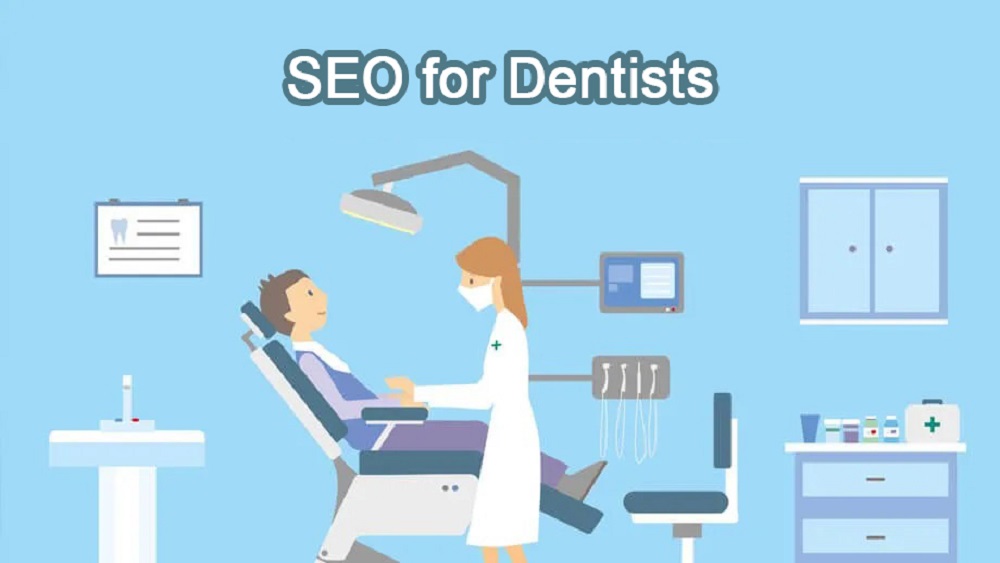
The Essentials of Dental SEO: A Key Strategy to Boost Your Google Rankings
As technology and the internet continue to evolve, so too do the methods businesses use to reach their clientele. Dental practices are no exception. In the digital age, it’s crucial for dental practices to establish a prominent online presence. This is where ‘dental SEO‘ steps in. SEO, or Search Engine Optimisation, is a strategic process that aims to boost a website’s visibility on search engines like Google. For dentists, a well-implemented SEO tactic can dramatically increase website traffic, aiding in attracting prospective patients. Dental SEO is not merely about attracting any traffic, but more focused on attracting visitors who are genuinely interested in your dental services. Ultimately, a solid dental SEO strategy can provide your practice with a competitive advantage, presenting an opportunity to stand out amongst an online sea of dental providers.
Understanding the Importance of Dental SEO
With more people turning to the internet for healthcare information, having a strong online presence is no longer optional for dental practices. In fact, it is estimated that over 70% of patients search online for dental clinics in their local area. Dental SEO is crucial in this regard, serving as a conduit that connects patients to your practice. Optimising your website for search engines increases your visibility, enabling you to reach more potential patients. Moreover, SEO makes your website user-friendly, improving the overall user experience. By strategically utilising SEO tactics, dental practices can not only attract more organic traffic but also build trust and credibility with their audience. Remember, SEO is not a one-time task but a continuous process that, when done right, can propel your dental clinic to new heights in the digital realm.
The Role of Quality Content in Dental SEO
Though several elements contribute to a successful dental SEO strategy, one stands out above the rest: quality content. Offering valuable content on your website not only captivates your audience but also signals to search engines the relevance and authenticity of your site. The more significant, useful, and unique the content, the more likely your site is to rank higher in search engine results. This includes blog posts, articles, infographics, and videos that answer common dental questions and provide interesting insights into oral health. It’s also essential to regularly update your content, keeping it fresh and relevant to your audience’s needs. Remember, content is king in SEO; hence, investing time and resources into creating and promoting superior content is a sure-fire way to boost your dental practice’s online visibility.

On-Page SEO: Optimising Your Dental Practice’s Website
On-page SEO relates to the optimisation of individual web pages on your dental practice’s website. This includes elements such as meta-descriptions, title tags, and content. These factors are crucial because they directly impact how search engines interpret your site and, as a result, its placement on SERPs (Search Engine Results Pages). For instance, integrating keywords related to your services and location can help search engines understand what your practice offers and where it’s located. It’s also important to ensure that your website is mobile-friendly, as Google ranks mobile-friendly sites higher. Moreover, site speed is a vital consideration; slow-loading pages may deter potential patients. On-page dental SEO not only improves your practice’s visibility but also enhances user experience, thus improving your chances of converting website visitors into patients.
Off-Page SEO: Building High-Quality Backlinks
Off-page SEO pertains to activities conducted outside the boundaries of the website. A crucial component of this is building high-quality backlinks. Backlinks, or inbound links, are links from other websites directed towards your site. They play a significant role in enhancing your dental practice’s visibility, as search engines consider backlinks as endorsements of your site’s credibility and relevance. High-quality backlinks from reputable, related sites can boost your ranking in search engine results. However, it’s not just about quantity; the quality of backlinks is paramount. Gaining backlinks can be achieved in various ways, such as guest posting, participating in online forums, and social media engagement. Remember, off-page dental SEO is about building and nurturing relationships, fostering an online reputation that mirrors the quality service your practice provides.
Local SEO: Making Your Dental Practice Searchable in Your Locale
Local SEO is another crucial aspect of a successful dental SEO strategy. It involves optimising your website to increase visibility in local search results. This is particularly important for dental practices, as most patients prefer a local dentist. Google My Business is a key platform for local SEO. Ensuring your practice’s listing is complete, accurate, and optimised is essential. Likewise, encouraging satisfied patients to leave reviews can also boost your local ranking. Localised content on your website, like location-specific blog posts or landing pages, can further strengthen your local SEO. Integrating local keywords into your site’s meta-descriptions and content can also have positive effects. With a strong local SEO strategy, your dental practice can effectively connect with patients in your locale, enhancing your online presence in the very community you serve.
Tracking and Improving Your Dental SEO Strategies
SEO is a long-term investment. It’s not just about implementing strategies but also about monitoring and refining them. Regularly tracking key metrics, like organic traffic, bounce rate, and conversion rate, can provide valuable insights into your dental SEO performance. Tools like Google Analytics and Search Console can prove invaluable in this regard. These insights allow you to identify what’s working, what’s not, and what needs fine-tuning. SEO is an ever-evolving landscape, with search engine algorithms frequently updating. Therefore, staying abreast of these changes and adapting your strategies accordingly is paramount. Remember, improving your dental SEO strategy isn’t a one-and-done deal; it’s a continuous process that requires commitment, patience, and a willingness to adapt.
Any surgical or invasive procedure carries risks. Before proceeding you should seek a second opinion from an appropriately qualified health practitioner.
Continue Reading









